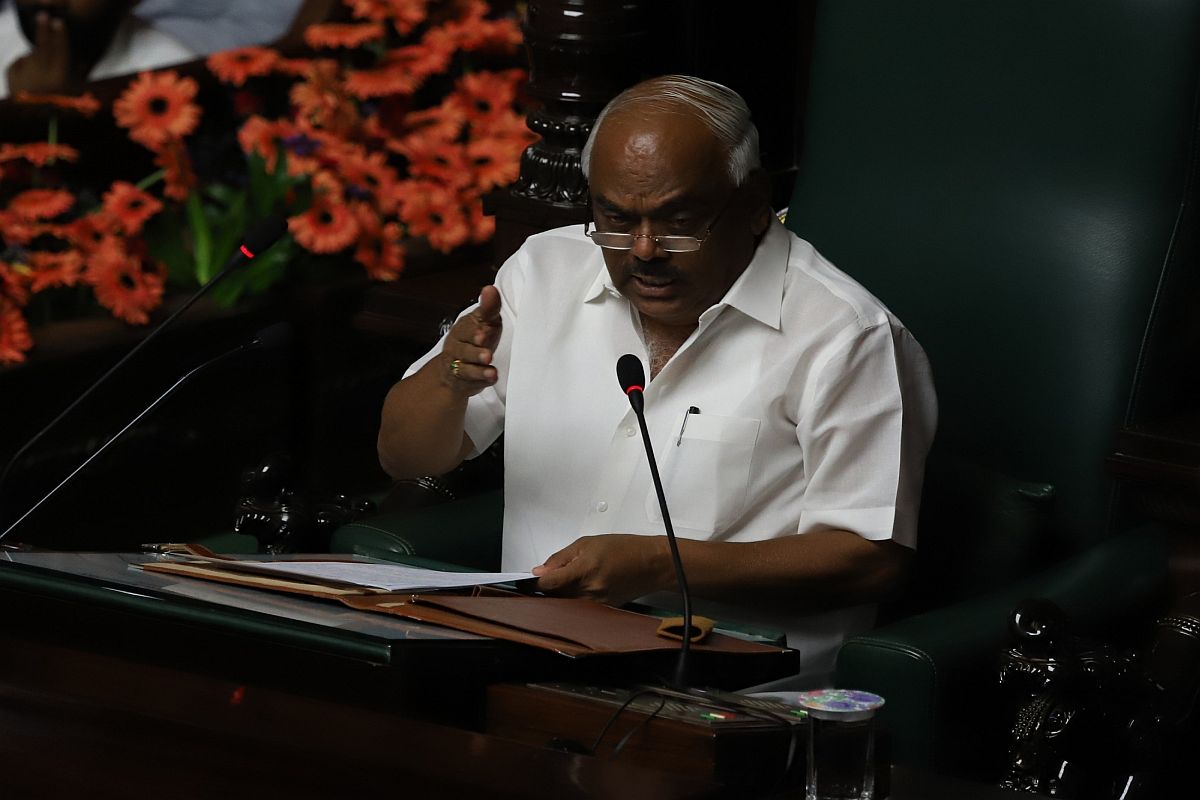The 2018 election to the Karnataka Assembly gave neither the Congress nor the Janata Dal (Secular) a mandate to form the government in Bengaluru. The Janata Dal(S), which is heading the government, secured just 34 seats in the 224- member Assembly and the Congress, its coalition partner, won 69 seats.
That the post-election alliance of the two parties never enjoyed the support of the people of Karnataka was evident from the recent Lok Sabha election. The alliance won just three of Karnataka’s 28 seats. The BJP won 25 seats. When a few of the Congress and JD(S) MLAs started making a beeline for the BJP camp, the honourable course for Chief Minister HD Kumaraswamy would have been to approach the Governor recommending dissolution of the Assembly and order fresh election.
Soon after the Assembly election, Governor Vajubhai Vala gave the first opportunity to BS Yeddyurappa of the BJP to form the government. He tried and failed to mobilise a majority. The Gadarene rush the Supreme Court exhibited on Thursday by ordering KR Ramesh, Speaker of the Karnataka Assembly, to meet 10 rebel legislators from the Congress and the JD(S) forthwith and take a decision on their resignation letters has fouled the political atmosphere in the State.
The Supreme Court and the Speaker of the Assembly are constitutional entities and their responsibilities are clearly earmarked. Article 190 of the Constitution defines in clear terms “vacation of seats” of legislators. For a Karnataka MLA to resign, he or she should conform to Rule 202 of the Rules and Procedure of Conduct of Business in the Assembly.
The first set of resignation letters of MLAs was submitted to the Speaker’s office in the afternoon of Saturday, 6 June. The MLAs were immediately spirited away from Bengaluru to Mumbai in a chartered aircraft, courtesy the BJP. The Speaker’s next working day was 9 June when he was seized of the resignation letters. Eight of them were found to be not in the prescribed format.
It is the responsibility of the Speaker, under Article 190, to ensure the resignation is voluntary and genuine. Instead of approaching the Speaker in his office, the MLAs who had submitted their resignation letters approached the Supreme Court.
The Assembly session begins on 12 July. The Speaker has asked the Deputy Speaker to sit in the chair during afternoon sessions so that he could meet the rebel MLAs in person and decide on their resignation letters. Where is the question of the Speaker delaying deliberately to act on the resignation letters?
The rebel MLAs continue to be members of the political parties from which they have been elected and thereby they are subject to the whips of their respective parties. In case any of the rebel MLA is disqualified, he or she will be barred from contesting election for six years. The BJP’s involvement in the present political crisis is clear for those with eyes to see and ears to hear.











